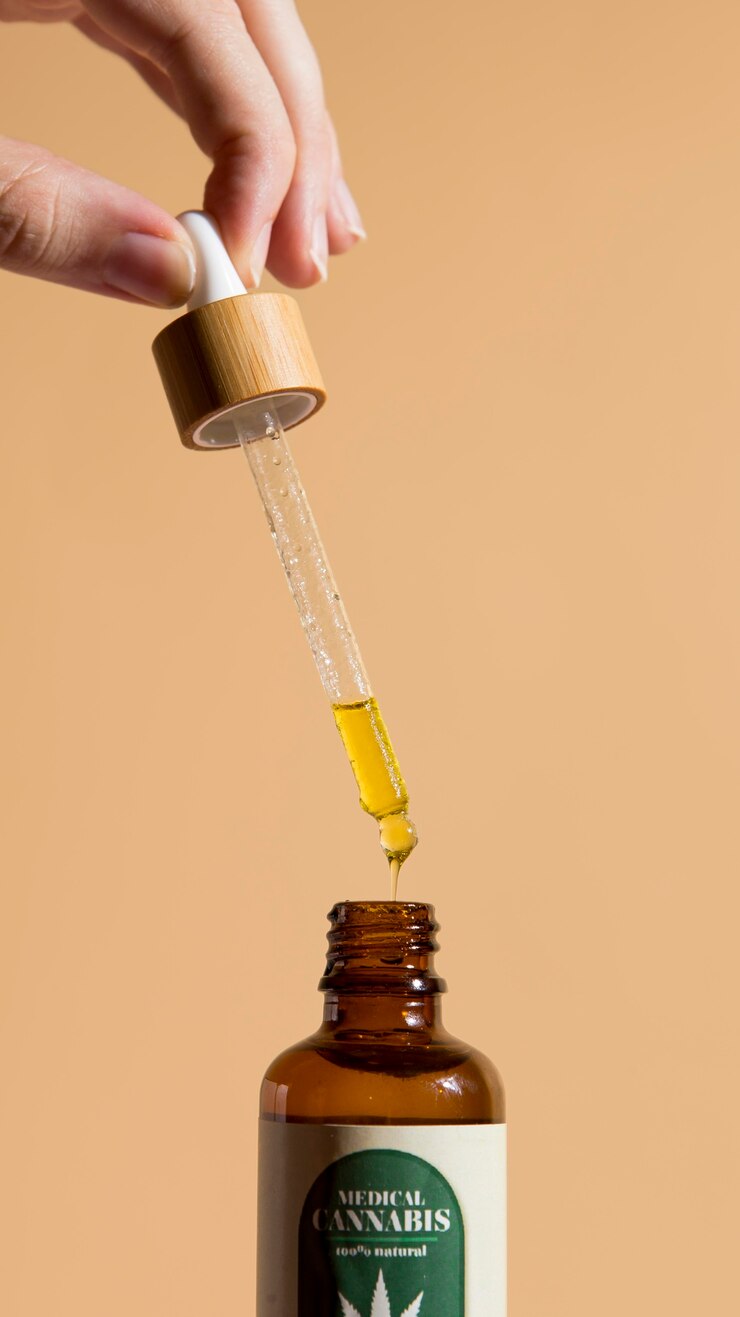CBD Vape Oil: Understanding the Pros and Cons
Puff or Pass? CBD Vape Oil: Understanding the Pros and Cons
CBD Vape Oil has emerged as a popular method for consuming cannabidiol (CBD) in the UK, offering a potentially faster way to experience its effects. But like any consumption method, it comes with its own set of advantages and disadvantages. If you’re considering using CBD Vape Oil, it’s crucial to understand both the potential benefits and the associated risks to make an informed decision about your wellness journey. This comprehensive blog post will delve into the pros and cons of CBD Vape Oil, helping you navigate this increasingly popular option.
What Exactly is CBD Vape Oil?

Contrary to what the name might suggest, CBD Vape Oil isn’t actually an oil in the traditional sense. True oils are generally not safe for inhalation. Instead, what’s commonly referred to as CBD Vape Oil is typically a CBD extract dissolved in a carrier liquid suitable for vaping. These carrier liquids are most often propylene glycol (PG), vegetable glycerin (VG), or a combination of both. Some CBD Vape Oil products may also contain flavourings to enhance the vaping experience.
It’s important to distinguish from regular CBD oil tinctures that are designed for oral or sublingual consumption. Ingesting vape oil can be harmful, and vaping oil tinctures is generally not recommended. Always ensure you are using a product specifically formulated for vaping.
The Pros of Using CBD Vape Oil: Why Some Choose to Vape
CBD Vape Oil has gained popularity for several compelling reasons:
- Faster Absorption and Onset of Effects: One of the primary advantages of vaping CBD is the speed at which it can enter your system. When you inhale CBD Vape Oil, the CBD is absorbed directly into the bloodstream through the lungs. This bypasses the digestive system and liver metabolism, leading to a quicker onset of effects, often within minutes. This rapid action can be particularly appealing for those seeking immediate relief from anxiety or sudden discomfort.
- Higher Bioavailability: Bioavailability refers to the percentage of a substance that enters the bloodstream and can have an active effect. Vaping CBD is often associated with higher bioavailability compared to oral consumption. This means that a larger proportion of the CBD you inhale may actually reach your system and exert its potential benefits.
- Variety of Flavors: The market for CBD Vape Oil is vast and offers a wide array of flavours, ranging from fruity and sweet to more traditional tobacco or menthol options. This variety can make the experience more enjoyable for some users and can cater to different preferences.
- Convenient and Portable: Vape pens and devices are generally small, discreet, and easy to carry around. This makes vaping CBD Vape Oil a convenient option for those who want to consume CBD on the go.
- Potential for Targeted Relief: While CBD’s effects are systemic, the faster onset associated with vaping can allow users to more quickly address acute needs, such as moments of heightened anxiety or sudden muscle tension.
The Cons of Using CBD Vape Oil: Important Considerations
Despite the potential benefits, there are several important cons to consider before using CBD Vape Oil:
- Potential Lung Irritation and Respiratory Concerns: Vaping, in general, has been linked to potential respiratory issues. While research on the long-term effects of vaping CBD specifically is still ongoing, inhaling any foreign substance into the lungs carries potential risks. Some individuals may experience lung irritation, coughing, or other respiratory discomfort when vaping CBD Vape Oil.
- Lack of Long-Term Research on Vaping: Vaping is a relatively new phenomenon, and the long-term health effects, especially concerning various additives and flavourings used in vape products, are not yet fully understood. This lack of extensive long-term research is a significant concern for some individuals considering CBD Vape Oil.
- Quality Control and Additives: The quality and safety of CBD Vape Oil products can vary significantly. Some products may contain harmful additives, contaminants, or inaccurate levels of CBD. It’s crucial to choose reputable brands that provide third-party lab testing to ensure product safety and accuracy. The presence of unregulated additives, such as Vitamin E acetate (which has been linked to serious lung injuries), is a serious concern.
- Social Stigma and Public Perception: While attitudes towards CBD are generally positive in the UK, vaping, in general, can still carry a social stigma and may not be permitted in all public places.
- Regulatory Landscape and Potential for Misleading Products: While the UK has regulations for CBD products, the vaping industry can sometimes be less strictly regulated. This can lead to the presence of misleading or unsafe products on the market. Consumers need to be vigilant and do their research before purchasing CBD Vape Oil.
Navigating the UK Market for CBD Vape Oil: Choosing Wisely
If you decide to explore CBD Vape Oil in the UK, it’s crucial to prioritize safety and quality. Here are some key factors to consider when making a purchase:
- Check the Ingredients List: Carefully review the ingredients list and avoid products containing potentially harmful additives like Vitamin E acetate. Opt for products that primarily contain CBD extract and safe carrier liquids like PG and VG.
- Look for Third-Party Lab Testing: Only purchase CBD Vape Oil from companies that provide readily available and recent Certificates of Analysis (COAs) from independent, third-party laboratories. These reports should verify the CBD content, confirm the THC levels are within the legal limit (under 0.2% in the UK), and screen for contaminants.
- Buy from Reputable Sources: Purchase your CBD Vape Oil from established and trustworthy retailers or directly from reputable CBD brands. Avoid purchasing from unregulated sources or marketplaces where quality control may be lacking.
- Consider the CBD Concentration: CBD Vape Oil comes in various strengths. Start with a lower concentration if you are new to vaping CBD and gradually increase as needed.
- Be Wary of Unsubstantiated Claims: Avoid products that make exaggerated or unproven health claims. CBD is not a cure-all, and responsible brands will not market it as such.
Understanding UK Regulations on CBD Vaping
In the UK, CBD Vape Oil is subject to regulations governing CBD products in general. This means it must contain less than 0.2% THC to be legal. Additionally, vape products are subject to regulations concerning nicotine content (if applicable) and product safety standards. However, the regulatory landscape for CBD vaping is still evolving, and it’s important for consumers to stay informed about any updates or changes in legislation.
Safe Usage Practices for CBD Vape Oil

If you choose to use CBD Vape Oil, prioritize safe vaping practices:
- Use Appropriate Devices: Ensure you are using a vape pen or device that is specifically designed for use with e-liquids.
- Follow Manufacturer Instructions: Always adhere to the manufacturer’s instructions for your vape device and the CBD Vape Oil you are using.
- Avoid Overheating: Do not overheat your vape device, as this can potentially lead to the formation of harmful byproducts.
- Start with Low Doses: Begin with short puffs and wait a few minutes to assess the effects before taking more.
- Be Mindful of Dosage: Keep track of how much CBD Vape Oil you are using to avoid excessive consumption.
- Store Products Safely: Store your CBD Vape Oil and vaping devices out of reach of children and pets.
Conclusion: Weighing the Pros and Cons of CBD Vape Oil
CBD Vape Oil offers the potential for rapid CBD absorption and a convenient way to consume CBD with a variety of flavour options. However, it’s crucial to be aware of the potential downsides, including respiratory concerns, the lack of long-term research on vaping, and the importance of choosing high-quality, safe products.
Before deciding whether CBD Vape Oil is right for you, carefully weigh the pros and cons, do your research, and prioritize products from reputable sources that provide third-party lab testing. If you have any underlying health conditions or concerns, it’s always best to consult with a healthcare professional before1 using CBD Vape Oil or any other CBD product. Making an informed decision is key to ensuring a safe and positive experience with CBD.
Frequently Asked Questions (FAQs)

1. Is CBD Vape Oil legal in the UK?
Yes, CBD Vape Oil is legal in the UK as long as it contains less than 0.2% THC (tetrahydrocannabinol). It’s crucial to purchase from reputable sources that can provide lab reports verifying the THC content.
2. Will vaping CBD get me “high”?
No, vaping CBD Vape Oil that complies with UK regulations will not get you “high.” CBD is non-psychoactive, and the legal limit of THC in UK CBD products is far too low to produce psychoactive effects. The “high” is caused by THC, which is present in very low amounts in legal CBD vape oil.
3. What are the potential risks of vaping CBD Oil?
Potential risks of vaping CBD Vape Oil include lung irritation, coughing, and other respiratory discomfort. There is also a lack of long-term research on the health effects of vaping in general. Additionally, the quality of vape oil can vary, and some products may contain harmful additives. It’s crucial to choose reputable brands and check for third-party lab testing to mitigate these risks.
4. How does vaping CBD compare to taking CBD oil orally in terms of effectiveness?
Vaping CBD Vape Oil typically leads to faster absorption and a quicker onset of effects compared to taking CBD oil orally. This is because the CBD is absorbed directly into the bloodstream through the lungs, bypassing the digestive system. Vaping2 may also have a higher bioavailability, meaning a larger percentage of the CBD may reach your system. However, the effects of vaped CBD may also be shorter-lived compared to oral consumption. The “best” method depends on individual needs and preferences.







